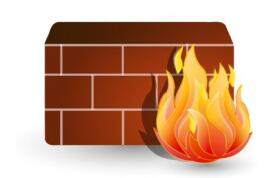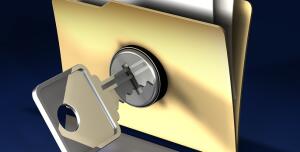Avoiding Cybercrime Dangers: Keep the Bad Guys Out With a Firewall On Your Internet Connection
 [This post is the seventh in a series. The original post can be found here.]
[This post is the seventh in a series. The original post can be found here.]
When you are connected to the Internet, the Internet is connected to you. For computers to transmit data back and forth over the Internet, lines of communication must be established. These communications work through “ports” that are opened on each computer. The problem is that all the computers on the Internet can see one another, and these ports can allow unauthorized people to access the data on a computer and even take control of it.
Regardless of how your office connects to the Internet, your computer systems must be protected by a firewall – a type of electronic gatekeeper that ensures all incoming and outgoing communications are legitimate. A firewall watches these ports and will warn you about or prevent unauthorized communications.
Firewalls come in two varieties: software and hardware. Software firewalls are easier to set up, usually protect a single computer, and are adequate for personal or small firm use. Hardware firewalls are usually used to protect an entire network of computers. The more recent versions of both the Windows and Mac operating systems have a built-in firewall that you should enable. High-speed modems generally include a basic firewall. If you are using remote access software, you should consider using a hardware firewall to better protect the ports that must be opened for the remote access software to work.
Dan Pinnington is the Vice President of Claims Prevention at practicePRO. This article first appeared in the December 2013 issue of LawPro magazine. Reprinted with permission. For more cyber safety tips, visit www.lawpro.ca.




